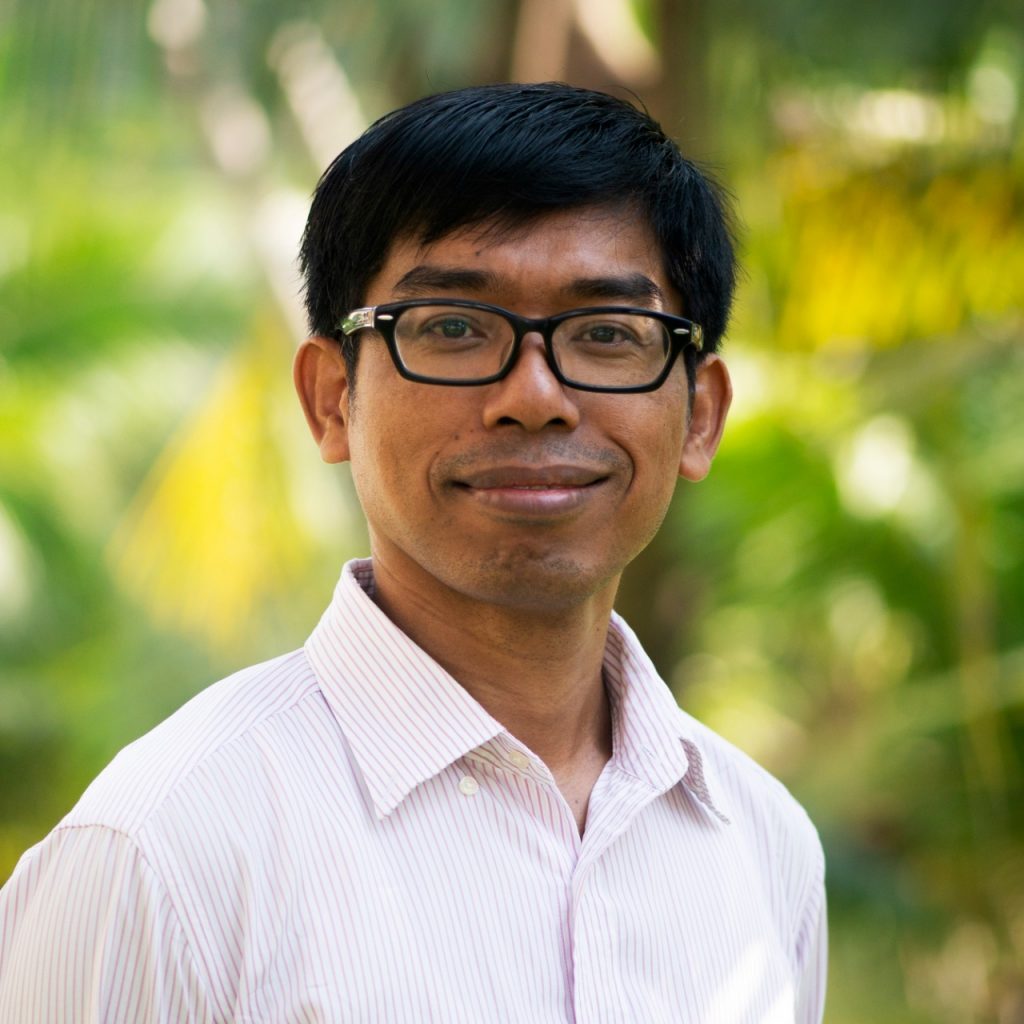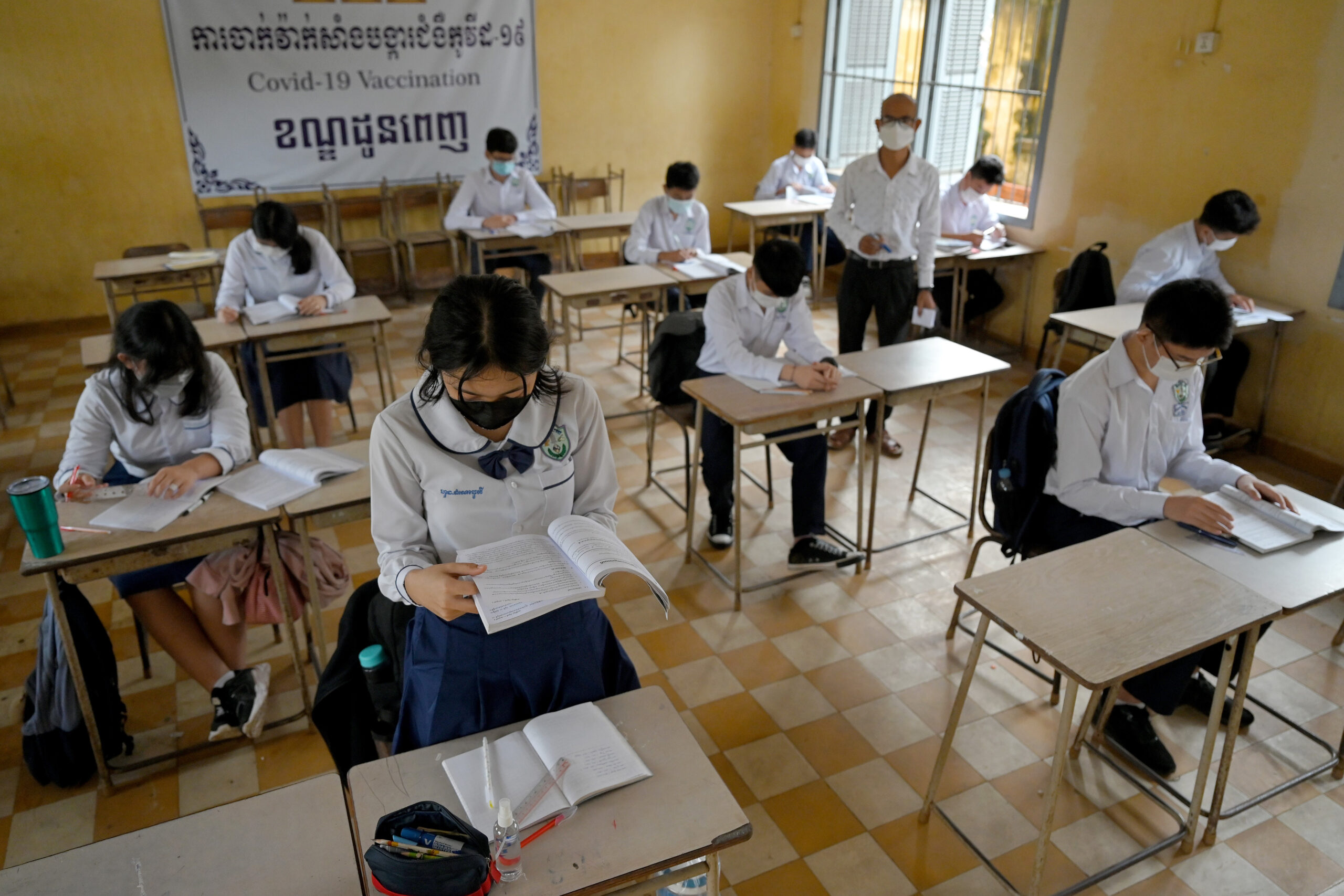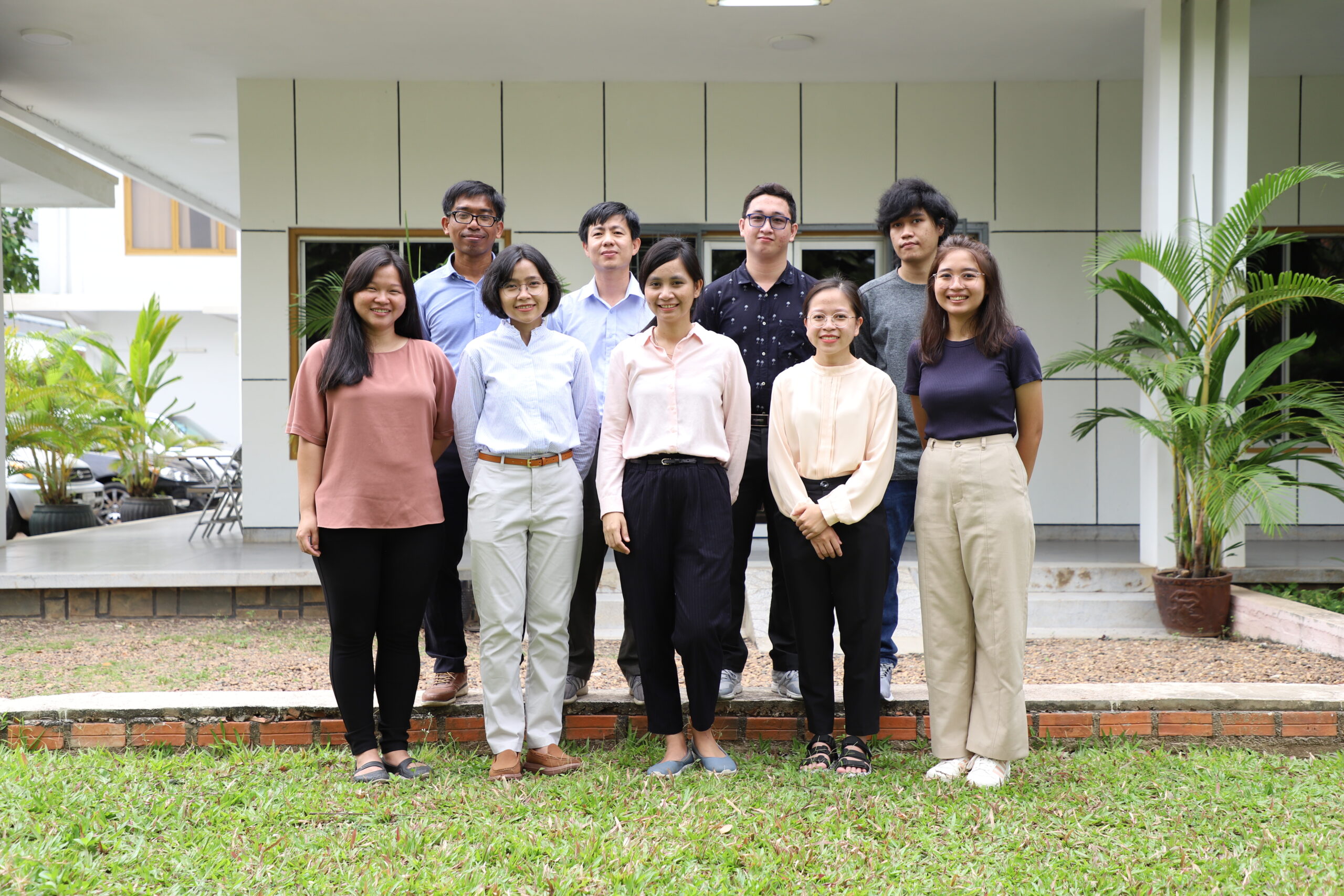After a tumultuous two years, schools in Cambodia are open, students and teachers are back in the classroom and it appears that a return to business-as-usual could be on the cards for 2022. While Covid-19’s unprecedented disruption to education will likely define these years in the national psyche, CDRI’s Centre for Educational Research and Innovation (CERI) is already looking to the future.
“With Covid-19, students learned to adapt to new situations,” explained Dr. Sopheak Song, CERI director. “In the next ten years, based on the current transformation in technology and in our development aspirations, students will be able to better utilise the internet and won’t be restricted to the confines of a classroom.”

Examining the pandemic’s impact, Thnal Udom Chomnes: Reimaging Future Education of Cambodia was launched in July 2021. The first stream included studies into higher education’s readiness for the “forced adoption of EdTech during Covid-19” and was introduced to stakeholders — including key government officials and leading educators — at a workshop in August 2021.
CERI also focuses on other practical aspects of skill and workforce development. Given the importance of preparing the labour force for the future of work, including implications of the Fourth Industrial Revolution, it is unsurprising that CERI has turned its attention to Technical and Vocational Education Training (TVET) as well.
Permeability in Cambodian Post-secondary Education and Training: A Growing Convergence, proposed that allowing students to transition between higher education and vocational training could reduce negative perceptions of TVET as a “dead-end track.” The study also suggested this type of mobility can increase agility within both educational pathways to respond to market demands and produce a new generation of more economically competitive citizens.

However, CERI’s research also looks at Cambodia’s emerging role in the worldwide network of academic and intellectual knowledge creation.
Published in February 2022, CERI’s second edited book, Cambodian Post-Secondary Education and Training in the Global Knowledge Societies is a collection of research that demonstrated CDRI’s commitment to education for Cambodia’s development. Aimed at fostering a post-secondary school system that provides students with pathways towards meaningful and lifelong learning, STEM pipelines and knowledge creation are integral aspects of this work.

As one of the few think tanks conducting comprehensive and rigorous primary research in the country, CDRI’s work contributes directly to this vision of Cambodia participating in global knowledge societies.
“Research is new knowledge generation,” said CERI Research Associate, Muy Tieng Tek.
“So in order for global knowledge societies to thrive, every individual has to contribute to knowledge generation.”
The goal of all of CERI’s work is to create an educational system that works for Cambodian people and whatever specific focus CDRI’s committed researcher’s take, this will remain at the heart of their efforts.
“If we can continue reforming education, I anticipate Cambodian academics taking part in producing knowledge and critically looking at how they are teaching to improve themselves,” said Dr. Song. “We must learn from knowledge and exchange with others, but at the same time we must produce something that is rooted here, that is grounded here.”
This article is a part of a paid partnership with Cambodia Development Resource Institute celebrating their 30 Year Anniversary and highlighting their work over the past three decades . Follow CDRI and stay up to date with their projects on their Facebook page. Learn more about the partnership here.


